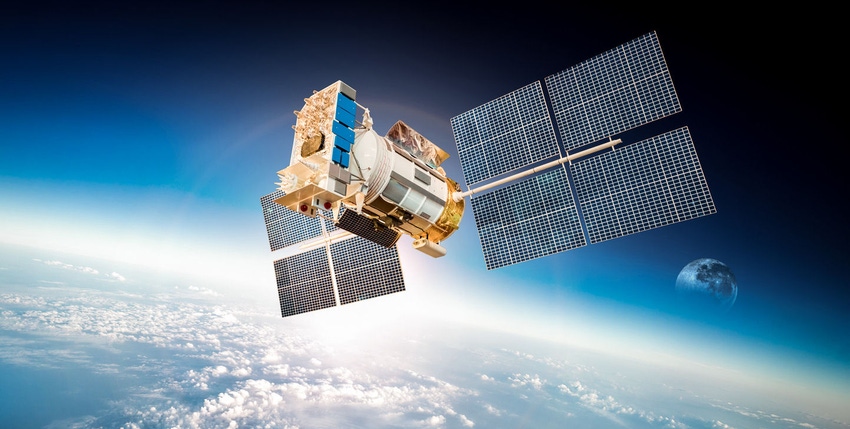Through an almost non-existent subsidiary, Facebook is seemingly exploring how it can play a role in the delivery of connectivity through low-orbit satellites.
May 4, 2018

Through an almost non-existent subsidiary, Facebook is seemingly exploring how it can play a role in the delivery of connectivity through low-orbit satellites.
In a partially redacted application to the FCC, PointView Tech LLC has filed an application to launch and operate a single low-orbit, non-geostationary satellite, known as Athena, to see whether the delivery of connectivity through such assets is a feasible exercise. Although PointView Tech is pretty much non-existent aside from on paper, the scent can be tracked back to Facebook HQ in California.
The application reads: “PointView’s request for experimental authority also encompasses two earth station that will conduct E-band communications with the satellite. The mission will be to determine whether such satellite communications can effectively provide broadband access to unserved and underserved areas throughout the world.”
Interestingly enough, should the experiment prove successful, Facebook might be able to outdo the likes of Elon Musk’s SpaceX, or the Richard Branson backed OneWeb. The application details plans to ‘validate’ technologies which allow the transmission of E-Band communications, more specifically 71-76 GHz for the downlink and 81-86 GHz for the uplink; the much heralded mmWave spectrum. A successful demonstration would offer faster download speeds than the likes of Musk or Branson are targeting.
Aside from this application to the FCC, Facebook is also on the recruitment trail to find an Extra-Terrestrial Product Manager. The new hire will be expected to guidance for the airborne and space-based connectivity technology roadmap, working with technologies including free-space optical communication, high frequency RF/mmWave RF, and electro-mechanical.
As you would expect, the objective here is to fuel the connectivity craze. Facebook is an incredibly profitable machine, however the business model is extremely narrow; get people on the platform and serve them personalised ads. Delivery of the model is complex, but the concept is not. For growth to continue, Facebook needs to figure out how to keep current users on the platform for longer, but also think of new ways to attract new users. Rolling out broadband to the unconnected regions is one way which this can be achieved.
This is hardly a new topic for the social media giant. At each edition of its annual developers conference, Facebook talks about connecting the unconnected, and this year is no different. At F8 Facebook boasted of partnerships with local operators to bring new fiber infrastructure to Uganda, and also work with the City of San Jose testing an advanced Wi-Fi network supported by Terragraph, as part of the Telecom Infra Project.
“Almost 3.8 billion people still aren’t with internet access,” said CTO Mike Schroepfer. “Having connectivity really boils down to solving a couple of key problems. We need to actually have access, we need to make it affordable, we need to increase awareness. So we have been working on a portfolio of technological and operational solutions to make this happen.”
Facebook has not done a very good job at differentiating revenue generation, therefore stimulating the expansion of connectivity to underserved regions is critical for the future of the business. There is still room to grow in the established markets, though the glass ceiling is looming on the horizon; Facebook can only monetize each user so much without denting the experience, though some might question whether this is actually now the case. As it hasn’t found new ways to make money, like Google or Amazon venturing into cloud IaaS services for example, growth can only be fuelled by new users.
The satellite itself is scheduled to be launched in 2019 to embark on a two-year experiment, so this certainly isn’t an overnight fix to the connectivity problem, but there certainly is gathering momentum for satellite broadband delivery.
About the Author(s)
You May Also Like








.png?width=300&auto=webp&quality=80&disable=upscale)


_1.jpg?width=300&auto=webp&quality=80&disable=upscale)


.png?width=800&auto=webp&quality=80&disable=upscale)